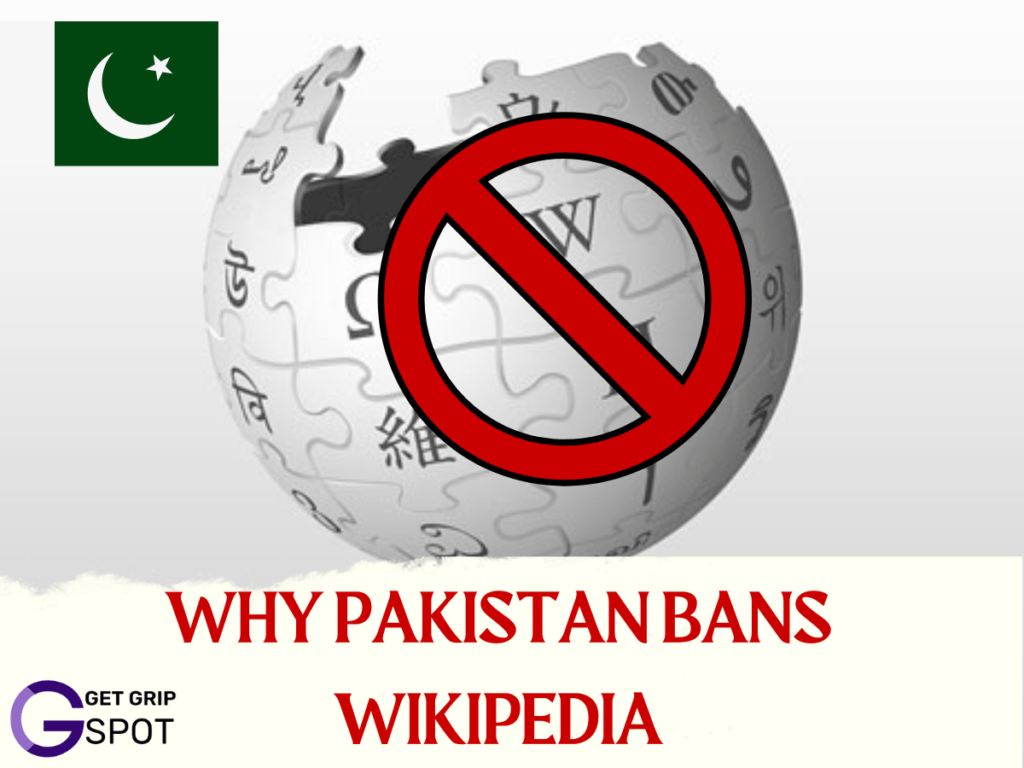There has been considerable discussion regarding Pakistan’s Wikipedia ban for several years. Since 2015, the nation has blocked access to the online encyclopedia, which is regarded as one of the internet’s most trustworthy sources of information. The ban is still in effect today despite the widespread use of virtual private networks (VPNs) and other ways to access the site. But why was Pakistan Ban Wikipedia in the first place, and what impact has it had on the country?

Table of Contents
The Proposed Explanation for Pakistan Ban Wikipedia
The ban was put in place, according to the Pakistan Telecommunication Authority (PTA), because the website contained “blasphemous content.” The PTA asserted that after receiving numerous complaints from users about the offensiveness of some articles on the website, it had independently investigated the matter and found that the material was indeed inappropriate. The authority decided that it was necessary to block access to the entire website as a result.
The Effect on Research and Education
The ban’s effects on Pakistan’s education and research sectors have been among the most significant. Because of the restrictions on access to one of the largest informational collections in the world, students and researchers are forced to rely on sources that might not be as reliable or complete. It has also become more challenging for students to access information for their studies, which has resulted in a decline in the caliber of research being done in the nation.
The ban has also made it challenging for educators to use Wikipedia as a teaching resource. As a result of the ban, many educators across the nation who previously used the website to supplement their lessons and find information for their students must now find alternative means of doing so.
Impact on Freedom of Expression
The impact of the Wikipedia ban on freedom of speech and information has also been criticized. The government is in effect controlling what its citizens can and cannot access by preventing access to one of the internet’s most reputable informational websites. Civil liberties organizations and human rights organizations have criticized this for going against the principles of free expression and open access to information.
The Prognosis for the Ban
Despite the criticism, Pakistan has not yet lifted the ban on Wikipedia, and it is unclear when or even if it will. It is unclear how this will be done given that there are more than 6 million articles in English alone. The PTA has stated that it will only lift the ban once the “blasphemous content” has been removed from the site.
USE SEO TOOLS FOR FREE ON OUR TOOL SITE: LINK
Pakistan Ban Wikipedia | The Debatable Role of Government in
The government of Pakistan has faced criticism for restricting access to information for many years due to the ban on Wikipedia. Many contend that the ban violates their right to access information, despite the government’s assertion that it is necessary to preserve national security and cultural values. This article will examine the contentious role that the Pakistani government played in the Wikipedia ban.
Worries about national security
National security is one of the main justifications provided by the government for the ban on Wikipedia in Pakistan. The government asserts that some articles on the website contain information that could be used by foreign organizations to destabilize the country and are harmful to it. They consequently disabled access to the website to stop the dissemination of this information.
Societal values
The government has asserted that the ban on Wikipedia is necessary to protect cultural values in addition to issues of national security. According to the government, some articles on the website contain material that offends Pakistani citizens’ cultural and religious beliefs. The government wants to stop the spread of this information and preserve cultural stability, so it has banned access to these articles.
Access to Information
Wikipedia’s government ban is opposed by those who claim that it violates the right to information freedom. They contend that the ban restricts people’s ability to learn and advance their knowledge and violates their right to access information. They contend that it is the responsibility of individuals to choose what information they want to access and that the government should not be permitted to impose such restrictions on access to information.
Juggling personal freedom and national interests
The controversy surrounding Pakistan’s Wikipedia ban demonstrates how challenging it is to strike a balance between personal freedom and national interests. On the one hand, the government is obligated to defend both national security and cultural norms. Individuals, on the other hand, have a right to information access and education. Finding the ideal compromise between these two interests is a difficult task that necessitates carefully weighing the evidence and arguments on both sides.
Conclusion
Pakistan’s decision to outlaw Wikipedia has had a significant effect on the country, affecting access to information, free speech, education, and research. It is unclear how the situation will be resolved in the future because it is a complex issue that calls for a careful and nuanced approach.
READ OTHER INFORMATIVE BLOGS: LINK
The role played by the government in Pakistan’s Wikipedia Ban is debatable and has generated a lot of discussions. Critics contend that the ban violates the right to information freedom, despite the government’s justifications that the restriction is required to uphold cultural and national security values. Finding a solution that respects both national interests and individual freedoms while balancing these interests is a difficult and complex task.

Pingback: How to Use Wikipedia in Pakistan after Ban?